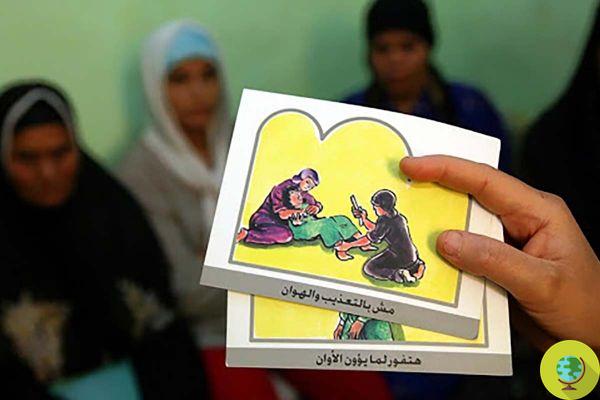
Egyptian government strengthened law against female genital mutilation (FGM), which now provides for one for those who commit this crime imprisonment up to a maximum of 20 years of prison. Female genital mutilation, which consists of the partial or total removal of the external genitalia, can lead to severe and permanent physical psychological consequences for a woman, including chronic infections, infertility and complications in childbirth.
Index
The wide spread of the practice in Egypt
According to a UNICEF report published in 2016, almost 90% of Egyptian women and girls between the ages of 15 and 49 would have suffered such mutilation. Traditional pre-Islamic ritual practice is still accepted by a part of the Muslim and Christian population, though since 2008 has been declared illegal in the North African country. In fact, Somalia is the country with the highest incidence of female genital mutilation (98% of women in the country have in fact undergone FGM), while Egypt has the highest total number of women in the world genital mutilation.
The new Egyptian amendments
The recent ones changes to the law, approved by the Egyptian government on 20 January but now under consideration by parliament and President Al-Sisi, they include theincrease of the maximum edictal penalty provided for by the penal code, which from the previous 7 years would pass to 20 years in prison. Furthermore, doctors and medical staff found guilty of engaging in female genital mutilation risk being banned from their profession for a duration of up to 5 years.
The corresponding prison sentence applicable by the judge can vary between a minimum of 5 and a maximum of 20 years depending on who performed the intervention, and is aggravated by any permanent damage caused to the victim, with more severe penalties in the event of the death of the woman. Those who resort to genital mutilation are also punishable.
It is not the first time that the law has been amended by the executive. Five years ago the very fact of practicing FGM or of deciding to undergo the controversial ritual practice was criminalized.
Not just laws, but awareness as well
Although in Egypt, to really change the status quo, it is not enough to adopt more stringent legislation on the subject, thelegislative intervention represents a first step in eradicating the practice of genital mutilation in the country, especially in remote rural areas where it is more tolerated. Much of Egyptian society, however, still does not see it as a crime to prosecute.
Following the 2016 law, they have been well few criminal trials completed and Egyptian groups in defense of women's rights believe that the anti-FGM legislation has not actually been implemented.
It therefore appears crucial to solve the problem of poor implementation of the aforementioned law. Beyond the alleged absence of a real social stigma in Egypt against the widespread practice, it is also necessary that the judicial authorities, the police forces and other law enforcement agencies take seriously the delicate and long-standing question of FGM. It is common opinion in Egypt that the infibulated woman can benefit from this condition, as a sign of respectability and chastity.
Fonti: Reuters/UNICEF
Read also:
- Female genital mutilation: those little girls injured forever
- Genital mutilation to pretend to be a virgin before marriage, violence over violence
- Infibulation: after Nigeria, the Gambia also bans female genital mutilation


























